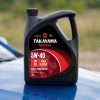India has begun one of the world’s biggest Covid-19 vaccination programmes, the first major developing country to roll out the vaccine and marking the beginning of an effort to immunise more than 1.3 billion people.
The first dose was administered to a health worker at All India Institute of Medical Sciences in the capital, New Delhi, after the prime minister, Narendra Modi, kickstarted the campaign with a nationally televised speech.
India cases
“We are launching the world’s biggest vaccination drive and it shows the world our capability,” Modi said. He implored citizens to keep their guard up and not to believe any “rumours about the safety of the vaccines”.
It is not clear if Modi, 70, has taken the vaccine himself, like other world leaders, as an example of the shot’s safety. His government has said politicians will not be considered priority groups in the first phase of the rollout.
India has registered more than 10.5m cases, the second highest in the world and 151,000 deaths. The government has been preparing for the vaccine rollout for weeks and over the past few days vaccine shipments were sent to more than 3,000 sites set up for injections.
Plans were drawn up by the Indian health ministry for 300 million people, almost the equivalent to the population of the US, to be vaccinated by August. Frontline healthcare workers, police and the army have been given priority, with those over 50 and with co-morbidity conditions to follow, all free of cost. Maharashtra, home to Mumbai and the state worst hit by coronavirus cases in India, plans to vaccinate 50,000 healthcare workers on the first day of vaccine rollout.
Across the vast country, more than 200,000 vaccinators and 370,000 vaccination team members have been trained for the rollout. Large-scale trial vaccine runs have been conducted in at least four states and authorities have readied 29,000 cold storage units to safely transport and hold the vaccine.
Two vaccines have been given emergency approval for India’s coronavirus immunisation programme; the Oxford/AstraZeneca vaccine, which will be known in India as Covishield, and a domestically-formulated vaccine, Covaxin, developed by Indian pharmaceutical company Bharat Biotech.
The approval of Bharat Biotech’s domestic vaccine, which was co-sponsored by an Indian government body, has proved controversial. Covaxin is still in phase 3 human trials and a full data-set on the vaccine’s efficacy has not been released or peer-reviewed, unlike the Oxford/AstraZeneca vaccine or the Pfizer and Moderna vaccines which have been authorised in the UK and the US.
India’s drugs controller general, VG Somani, insisted Covaxin was “100% safe”.























































Свежие комментарии